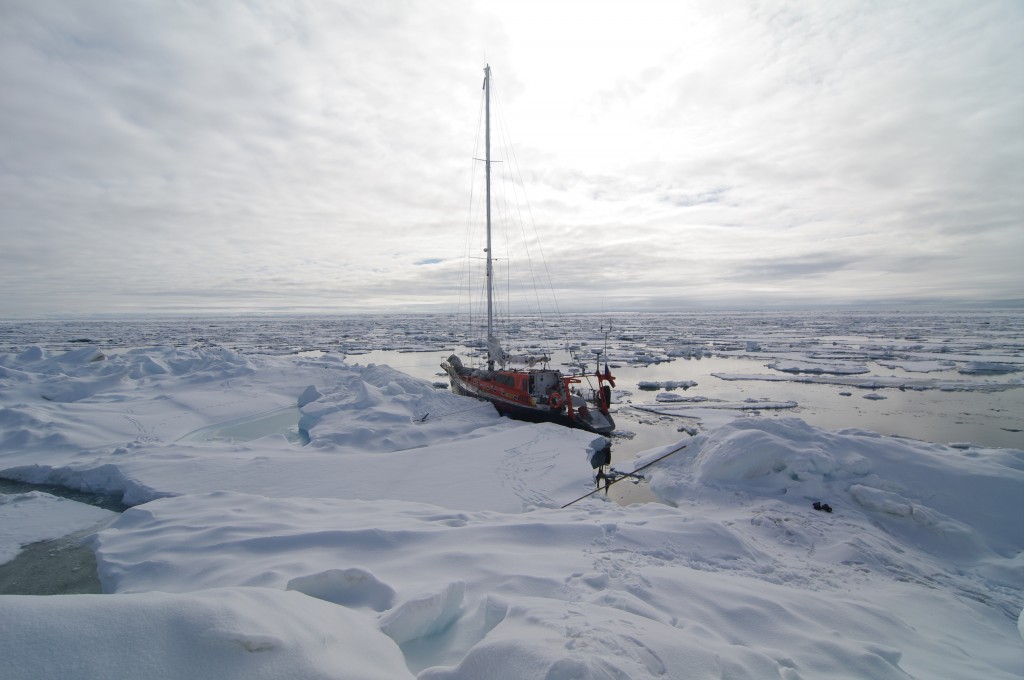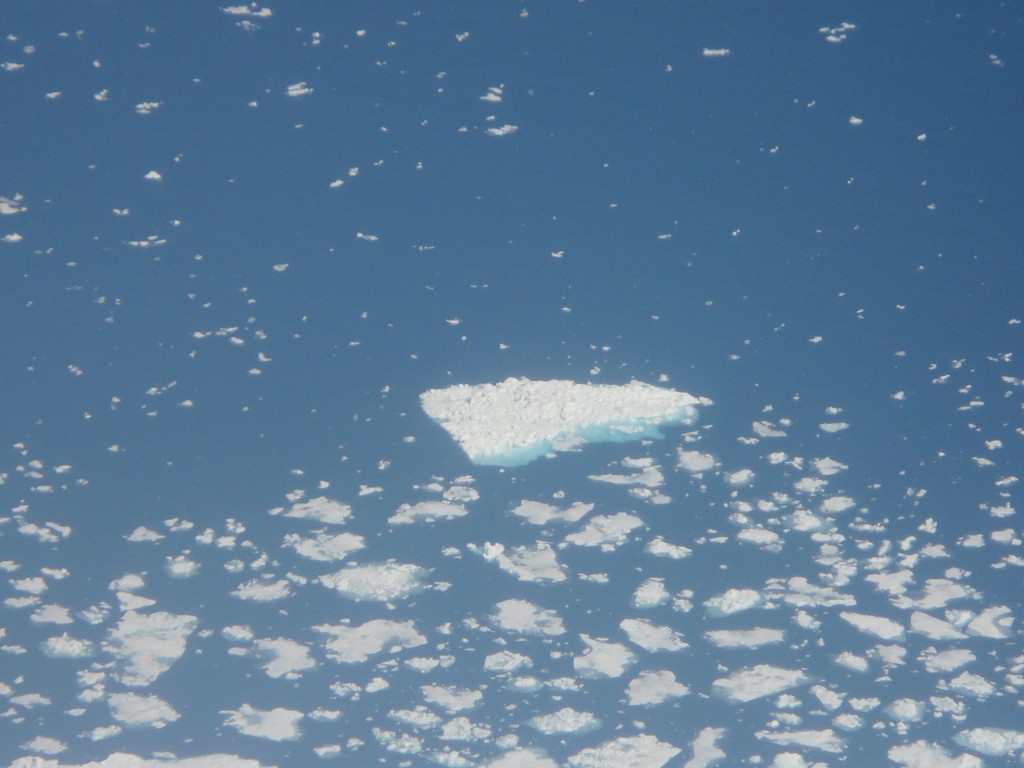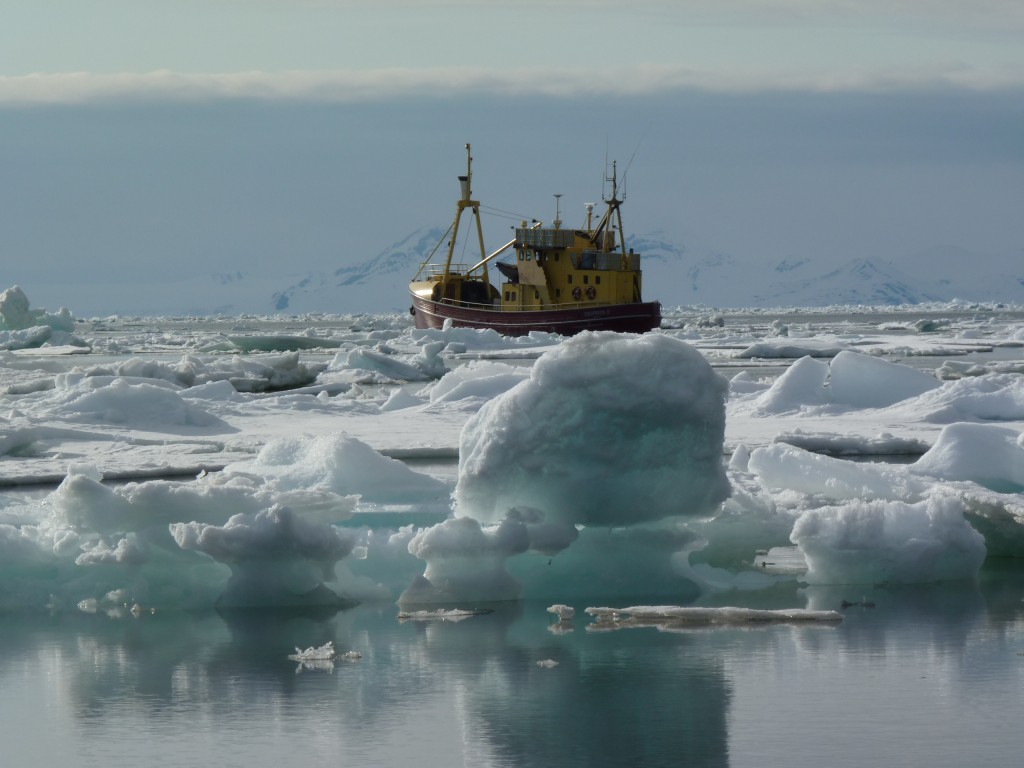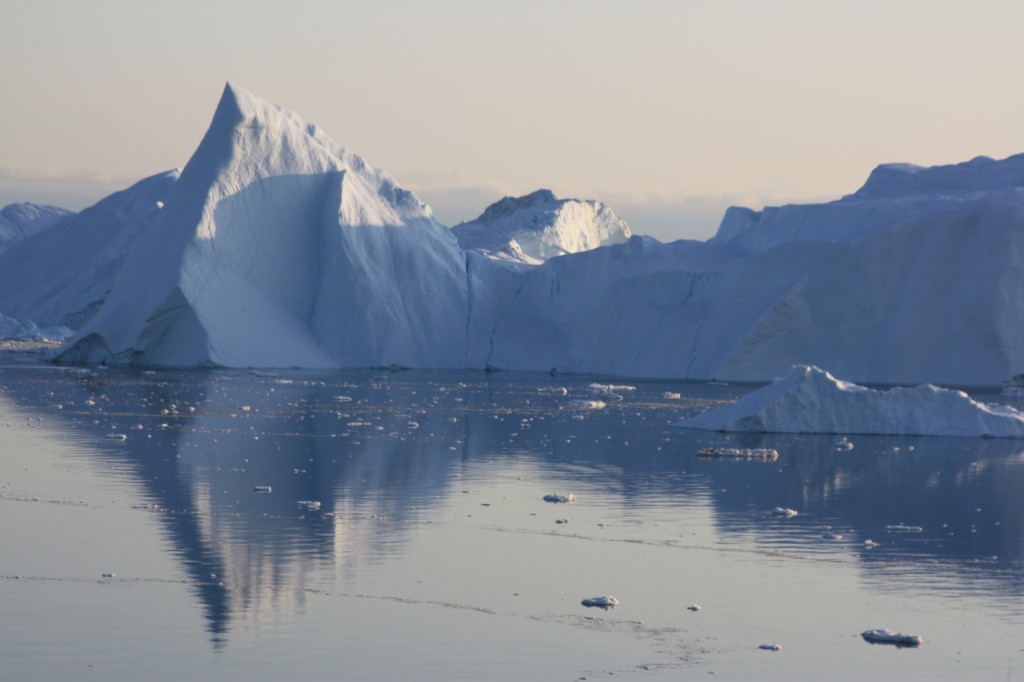Search Results for Tag: Arctic
North East passage opening up early this summer?
The North-East passage, the sea route that goes along the northern coast of Russia, looks as if it will be free of ice at a very early stage this summer, according to scientists from Germany’s AWI, Alfred Wegener Institute for Polar and Marine Research. Towards the end of last winter, the scientists found large areas of the Laptev Sea covered by ice which was only a maximum of 50 cm thick. This, they say, is unlikely to last long once the summer sun comes out. Previous measurements in 2007/2008 had recorded ice thicknesses of up to a metre around the same place . Dr. Thomas Krumpen, the expedition leader, said the team has been surprised by the measurements, taken by a special ice-depth sensor dangled from a helicopter. Dr. Krumpen says the wind is probably responsible. When the wind is blowing from land out on to the sea, it forces the pack ice from the Laptev Sea northwards. This leaves open areas of water at the coast, which cool out fast and form thin ice. But the scientists were not previously aware that the areas could be this big. In some places they flew a good 400 kilometres over thin ice. The team want to use the measurements to calibrate satellite data.
More information on the AWI website, but I’m afraid the English version of this story doesn’t seem to be available yet.
Arctic CO2 hits alarming levels
Worrying news from scientists in the USA monitoring the global CO2 concentration. NOAA (The US National Oceanic and Atmospheric Administration) says for the first time ever, more than 400ppm (parts per million) have been measured in the atmosphere in the Arctic. This is a very worrying development. Jim Butler, who’s in charge of global monitoring at NOAA, says this should be a reminder to everybody that we are in deep trouble. CO2 concentration has been rising increasingly fast. 350 ppm is the figure many scientists say is the highest the earth can go without being in danger from drastic climate change.
So far, it’s only the Arctic – which is heating up around twice as fast as the rest of the planet – where the 400pm mark has been reached. The average is around 395ppm for the rest of the world. But the NOAA researchers – not known for exaggeration I’d say – say the 400 mark will be reached in just a few years.
Bearing in mind the lack of progress in international negotiations, with a report recently published indicating we’re heading for a 3.5 degree C rise in global temperature, way above the 2° target set by the international community, it’s hard to see how we are going to turn this around. And, as Professor Mojib Latif, one of the IPCC lead authors and a renowned meteorologist and climate expert, reminded me just last week, even those 2° would be a major challenge and unprecendented for the earth.
Polar bears evolved earlier than previously thought

Polar bear genome shows they evolved much earlier than previously thought. Picture by Alan Wilson, www.naturepicturesonline.com
A team of scientists led by researchers from the German Biodiversity and Climate Research Centre (BiK-F) has found out that polar bears evolved as early as some 600,000 years ago. The study, published in the current issue of the journal “Science”, ( Nuclear Genomic Sequences Reveal that Polar Bears Are an Old and Distinct Bear Lineage, Hailer, F. et.al) says the white giants are thus five times older than previously realised.
Why do we need to know this apart from pure scientific curiosity? Because knowing when polar bears evolved as a genetically distinct species, different from brown bears, could help us understand what is going to happen to the polar bears if the planet keeps heating up. You can read more about how the scientists came to their conclusions and what implications they could have here.
China and the Arctic – “a public area, just like the moon?
Now who could come up with a statement like that? It has to come from a country showing a growing interest in the region although it has no Arctic territory. The Chinese premier Wen Jiabao is coming to Europe tomorrow and the Arctic is to be a key focus of his trip. He’ll be spending eight days visiting Iceland, Sweden, Poland and Germany.
There are two main reasons for the Chinese interest: energy, and shipping routes. China is the world’s biggest consumer of energy and greatly interested in the resources becoming more easily accessible through climate change. The retreat of the sea ice is also opening up new routes for shipping in summer, which could cut the sea voyage between Shanghai and northern Europe by around 6,400 km. So there are difficult times ahead for those who want to protect the sensitive Arctic environment and wildlife from increasing traffic and risky exploration for oil, gas and minerals. I wrote about this some time ago, and it’s certainly going to keep coming up:
Arctic Regions Eye Nation’s Potential
Titanic, Icebergs and a Warming Arctic
There’s a lot of media hype surrounding the 100th anniversary of the loss of the Titanic on April 15th 2012. It started so early, I was beginning to get tired of it – until I came across an article in the Vancouver Sun focussing on the fact that icebergs are still a danger in our high-tech age and that danger could increase rather than decrease as you might think at first, as the Arctic ice melts.
![]() read more
read more
























Feedback